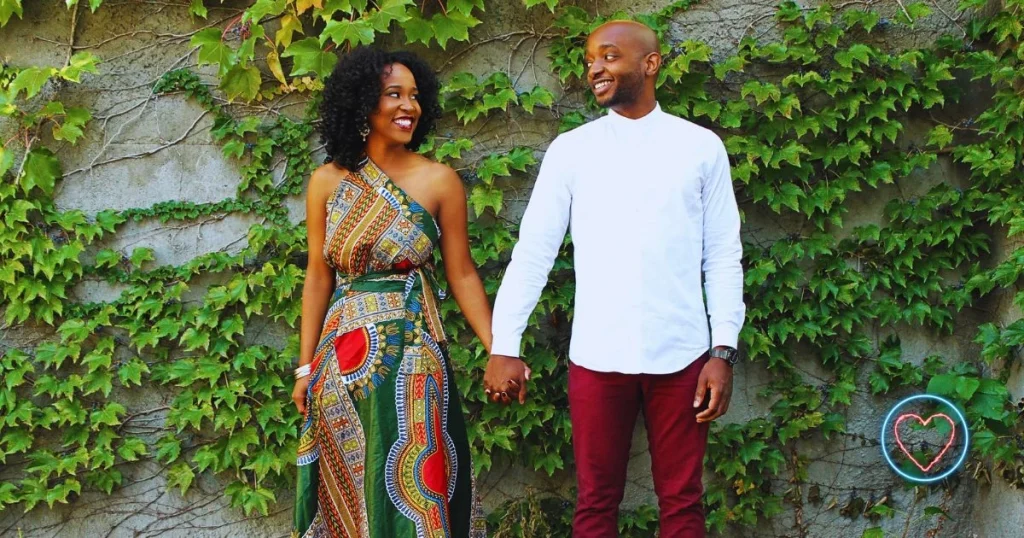In any healthy, thriving relationship, emotional support is the glue that holds everything together. It’s not about grand gestures or perfect words—it’s about being present, empathetic, and consistently showing up for one another. When couples actively foster emotional support, they cultivate deeper trust, better communication, and a stronger sense of intimacy. But how do you actually build emotional support, especially if it hasn’t been a strong point in your relationship?
Whether you’re in a new partnership or trying to rebuild a struggling one, this guide offers practical steps to create a space where both you and your partner feel seen, heard, and emotionally safe.
Understanding Emotional Support
Before diving into the “how,” it’s important to clarify what emotional support actually is. At its core, emotional support involves:
- Empathy – Understanding and sharing your partner’s feelings.
- Validation – Acknowledging emotions without judgment.
- Availability – Being mentally and emotionally present.
- Encouragement – Offering positive reinforcement and reassurance.
- Active engagement – Participating in emotional moments, not avoiding them.
It’s not just about being there during crises; it’s also about celebrating wins, navigating daily stressors, and offering steady comfort when life feels overwhelming.
Why Emotional Support Matters
Strong emotional support is associated with:
- Higher relationship satisfaction
- Lower stress levels
- Improved communication
- Enhanced emotional intimacy
- Increased resilience during hardships
Without it, couples often feel misunderstood, lonely, and disconnected—even if they live under the same roof.
1. Start With Self-Awareness
The journey to building emotional support begins with understanding yourself. You can’t support your partner effectively if you’re not in tune with your own emotional world. Ask yourself:
- How do I express emotions?
- Do I struggle with vulnerability?
- Do I listen to understand or respond?
Becoming aware of your own patterns makes it easier to show up for your partner without projecting or withdrawing.
Tip: Consider journaling your emotional triggers or talking to a therapist to deepen your self-awareness.
2. Create a Safe Emotional Environment
Your partner needs to feel emotionally safe to open up. That means no judgment, no harsh criticism, and no dismissiveness.
What to do:
- Avoid minimizing their feelings with phrases like “You’re overreacting” or “Calm down.”
- Listen without interrupting—resist the urge to fix or defend.
- Validate their experience by saying, “That sounds really tough,” or “I can see why you feel that way.”
Creating emotional safety allows vulnerability to flourish.
3. Practice Active Listening
Active listening is a cornerstone of emotional support. It shows your partner they’re truly being heard.
How to actively listen:
- Maintain eye contact and put away distractions.
- Nod or affirm with “I see” or “That makes sense.”
- Repeat what you heard: “So what you’re saying is…”
- Ask open-ended questions: “How did that make you feel?”
When someone feels listened to, they feel valued—it’s that simple.
4. Ask Instead of Assuming
Don’t assume you know how your partner wants to be supported—ask them directly. Everyone has different emotional needs. Some people want hugs, others prefer space. Some crave verbal encouragement; others want practical help.
Try asking:
- “What do you need from me right now?”
- “Would you like advice or just a listening ear?”
- “How can I support you when you’re feeling down?”
This approach prevents miscommunication and empowers both partners.
5. Be Consistent, Not Just Reactive
True emotional support isn’t just about stepping up during a crisis—it’s about showing care consistently.
Ways to offer daily support:
- Check in with a morning “How are you feeling today?”
- Celebrate small wins together.
- Be present in everyday conversations, not just serious ones.
- Express appreciation: “I love how you handled that today.”
Consistency builds emotional trust and signals long-term reliability.
6. Build Emotional Vocabulary Together
Many couples struggle with emotional support because they lack the language to express what they’re feeling. Building a shared emotional vocabulary can bridge that gap.
You can try:
- Emotion wheels to identify nuanced feelings.
- Regular check-ins using prompts like “Today I feel _____ because _____.”
- Journaling and then sharing insights with each other.
When both partners can articulate emotions clearly, support becomes much easier to offer and receive.
7. Offer Physical Touch Mindfully
Touch is a powerful form of emotional support—but only when it’s wanted. A reassuring hand squeeze, a warm hug, or sitting close can all communicate comfort without words.
Important: Always be attuned to your partner’s comfort level. Consent and timing matter.
8. Learn Each Other’s Love Languages
Gary Chapman’s five love languages—Words of Affirmation, Acts of Service, Receiving Gifts, Quality Time, and Physical Touch—are essential tools for emotional support.
If your partner values Words of Affirmation, praise and reassurance go a long way. If they value Quality Time, putting your phone down during dinner matters more than any gift.
Understanding your partner’s love language helps you express emotional support in a way that resonates deeply.
9. Respect Emotional Differences
You and your partner may handle emotions very differently. One of you might want to talk through everything; the other may need time alone to process. Emotional support includes respecting those differences and meeting halfway.
What to do:
- Don’t label your partner as “too sensitive” or “too cold.”
- Ask: “What helps you feel supported when you’re upset?”
- Give them space if needed, but reassure them of your presence.
The goal is not to change each other, but to support each other authentically.
10. Offer Reassurance During Conflict
Conflict is inevitable, but it doesn’t have to feel threatening. During arguments, emotional support can still be present.
How to support during conflict:
- Reassure your partner: “I care about us—even when we disagree.”
- Avoid name-calling or sarcasm.
- Take breaks when things get heated and return when calmer.
Support during conflict shows your partner that love doesn’t vanish when tension arises.
11. Apologize and Take Responsibility
Mistakes happen. We misread moods, say the wrong thing, or fail to be there at a crucial moment. What matters most is how we repair.
A heartfelt apology—“I’m sorry I wasn’t more present yesterday. You didn’t deserve that”—can do wonders for emotional connection.
12. Celebrate Vulnerability
When your partner shares something painful, scary, or intimate, recognize that vulnerability is a gift. Rather than reacting with discomfort or brushing it off, lean in.
Say things like:
- “Thank you for trusting me with that.”
- “I’m really honored you shared that with me.”
Positive reinforcement encourages future openness and strengthens emotional bonds.
13. Support Their Dreams and Goals
Emotional support isn’t just about navigating struggles—it’s also about championing each other’s growth.
- Cheer them on during big moments: job interviews, creative pursuits, or health goals.
- Remind them of their strengths when they doubt themselves.
- Show genuine interest in their passions.
When your partner feels supported in their ambitions, it cultivates mutual admiration and emotional intimacy.
14. Invest in Emotional Growth Together
Relationships are dynamic. The more effort you both put into emotional development, the stronger your connection becomes.
Try together:
- Couples therapy (even proactively).
- Reading books on emotional intelligence.
- Attending workshops or retreats.
- Having monthly emotional check-ins.
Learning and evolving together builds resilience and emotional depth.
15. Know When to Seek Help
Sometimes, despite best efforts, emotional disconnection lingers. If you or your partner consistently feel unsupported, consider seeking professional guidance. Therapy can help uncover patterns, heal emotional wounds, and rebuild connection.
There’s no shame in asking for help—it shows maturity, commitment, and courage.
Final Thoughts: Love Isn’t Enough—Support Is Key
Love is foundational, but it’s emotional support that keeps a relationship alive, fulfilling, and deeply bonded. It’s in the small moments—listening with presence, offering a hug after a long day, or simply saying “I’m here”—that emotional intimacy is born.
Building emotional support takes practice, intention, and patience. But the rewards—trust, connection, and lasting closeness—are more than worth it.
Remember: You don’t need to be a therapist, a fixer, or a mind-reader. You just need to show up, with empathy, openness, and love.




















